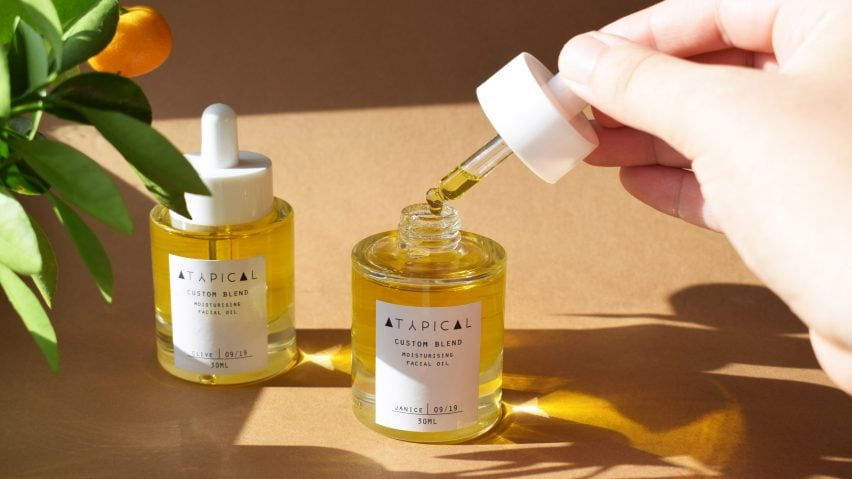What Is Customised Skincare and Should You Try It?
- Elena Strauss

- Feb 25, 2025
- 4 min read
By Elena Strauss, Product Innovation | International Institute of Beauty
In the ever evolving world of beauty, “customisation” has become more than a buzzword, it's a fundamental shift in how we approach skincare. As technology advances and consumer expectations evolve, the one size fits all approach to beauty is rapidly being replaced with personalised solutions tailored to individual skin profiles.
Enter customised skincare: the new frontier where science, data, and beauty converge.

But what exactly is customised skincare, how does it work, and most importantly, should you try it?
The Rise of Bespoke Beauty
For decades, skincare products have largely been formulated with broad skin types in mind , dry, oily, combination, sensitive. While these categories still play a role, they no longer fully encapsulate the diverse needs of individual skin.
Today’s consumers are more informed, more digitally connected, and more demanding. They expect their products to be smart, efficient, and tailored to their unique biology.
Customised skincare responds to this demand by offering formulations based on an individual’s skin data, from hydration levels and oil production to genetic markers, environmental exposure, and even lifestyle habits.
Whether through online quizzes, in store diagnostics, or AI powered apps, the goal is the same: skincare that adapts to you, not the other way around.
How Customised Skincare Works
There are multiple routes to achieving personalised skincare, and most fall into three main categories:
1. Algorithm Based Analysis
Many direct to consumer brands begin the customisation process with a digital questionnaire. These detailed surveys ask about your skin concerns, age, environment, sleep patterns, stress levels, and more. The brand’s proprietary algorithm then uses this data to recommend or formulate a bespoke skincare routine.
Notable examples include brands like Skin+Me and Proven Skincare, which use dermatological and AI backed analysis to craft unique formulations.
2. AI and Diagnostic Tools
More advanced services involve skin imaging and diagnostics using AI or dermatological scanners. Tools such as Neutrogena’s Skin360 or the HiMirror analyse your skin’s texture, tone, fine lines, and pores in real time. Based on this information, they can adjust product recommendations or prompt tailored formulations.
Some beauty tech startups are even integrating DNA testing to identify predispositions such as collagen breakdown or inflammation triggers.
3. On Demand Formulation
Once your skin profile is complete, your custom products are mixed and shipped, often fresh. Unlike mass produced skincare, these formulations are made in small batches, using ingredients tailored to your profile, and can be tweaked over time as your skin changes.
The Science Behind the Formulations
What makes customised skincare so promising is its foundation in data and dermatological science. Instead of using guesswork or generic solutions, these formulas combine active ingredients based on synergistic effects unique to the user's needs.
For example, if your diagnostic shows a compromised barrier and high pigmentation, your formula might include ceramides and tranexamic acid, but leave out harsher actives like retinol until the barrier is restored.
This targeted approach can result in more efficient results, fewer reactions, and higher satisfaction, especially for those with sensitive or acne prone skin.
Benefits of Customised Skincare
1. Precision: Custom skincare takes the guesswork out of your routine. You're not just buying what’s trending, you’re using what’s right for your skin at this moment.
2. Efficacy: Formulas can be adjusted over time, allowing you to continually refine your results based on seasonal changes, hormonal fluctuations, or new skin concerns.
3. Sustainability: By producing only what is needed, customised skincare brands reduce excess inventory and packaging waste, a win for eco conscious consumers.
4. Transparency: Many bespoke brands offer full ingredient transparency and scientific rationale behind each formula, which aligns with the growing demand for ingredient literacy in beauty.
Limitations and Considerations
Despite its allure, customised skincare is not without limitations. Here are a few things to keep in mind:
Price Point: Bespoke formulations typically come at a premium, with many brands operating on subscription models.
Ingredient Restrictions: Some ingredients are tightly regulated and can’t be included in custom formulas without a prescription (e.g., higher percentages of tretinoin or hydroquinone).
Lack of Standardisation: With so many players entering the personalised space, not all brands uphold the same standards in data collection, analysis, or formulation. It’s important to choose a brand with dermatological backing and proven efficacy.
Changing Skin Needs: While many services allow for formula adjustments, others might lock you into a routine for several months, which may not suit rapidly changing skin conditions.
Is Customised Skincare Right for You?
If you’ve tried countless products without finding your “holy grail”, or if you have specific skin concerns that aren’t well served by mainstream lines, customised skincare could be the breakthrough you’re looking for.
It’s especially beneficial for:
People with combination, sensitive, or acne prone skin
Those looking for minimalist but targeted routines
Consumers interested in tracking skincare results more systematically
Tech savvy individuals open to AI diagnostics and digital tracking tools
On the other hand, if your skin is relatively stable and you're satisfied with your current products, a custom approach might not offer significantly better results, though it may still enhance your routine through precision and peace of mind.
Final Word from the Institute
Customised skincare represents a paradigm shift in how we think about beauty. By harnessing data, biotechnology, and AI, the beauty industry is finally treating skin as the dynamic, complex organ it is, deserving of personalisation and scientific precision.
While the market continues to evolve, one thing is clear: personalised skincare is not a passing trend. It’s the next evolution of beauty innovation, and the smartest brands, and consumers, are already embracing it.
Whether you're a beauty enthusiast or a future forward thinker, now might be the perfect time to see what your skin really needs, and how technology can help you meet those needs with confidence.



Comments